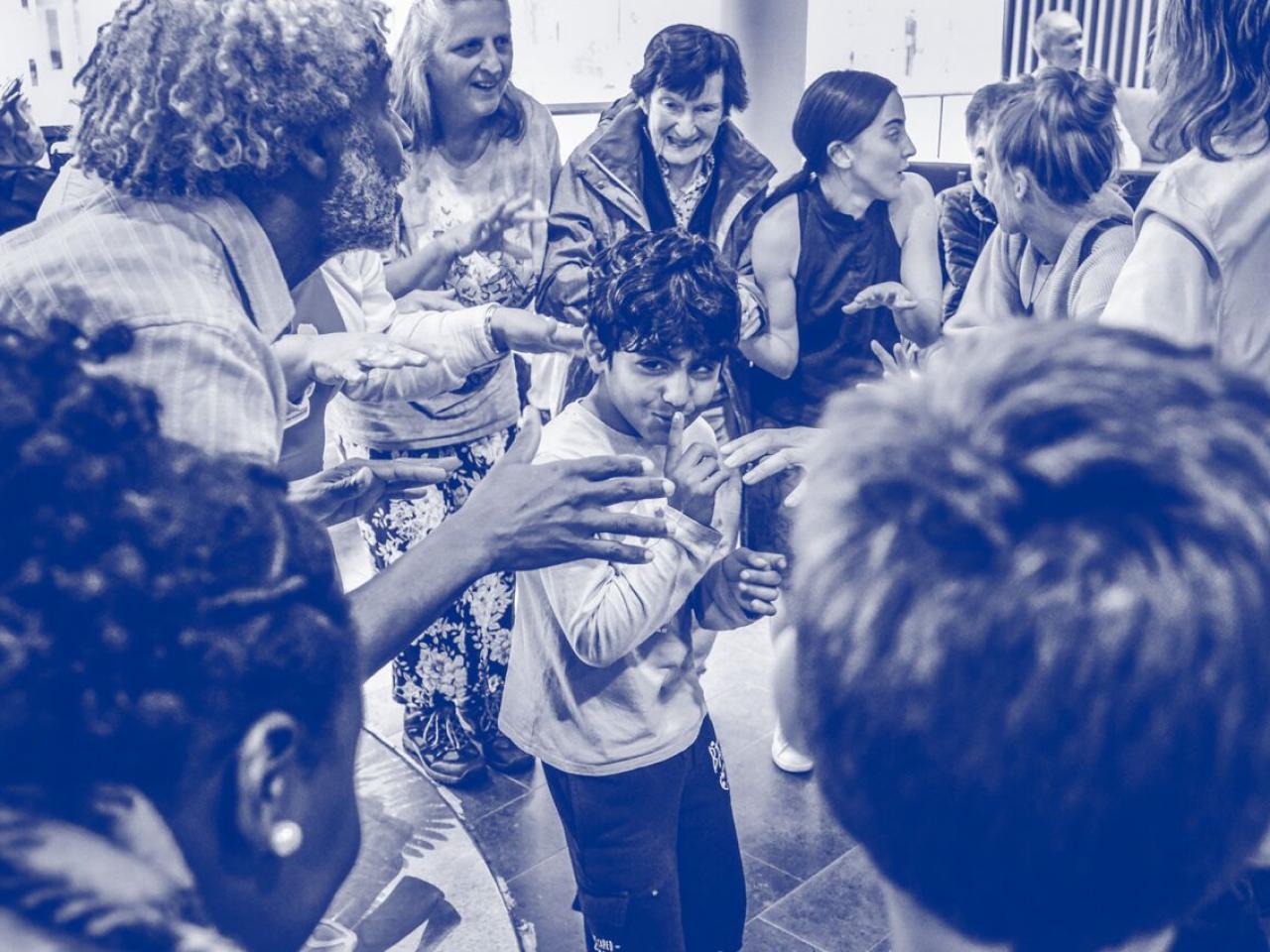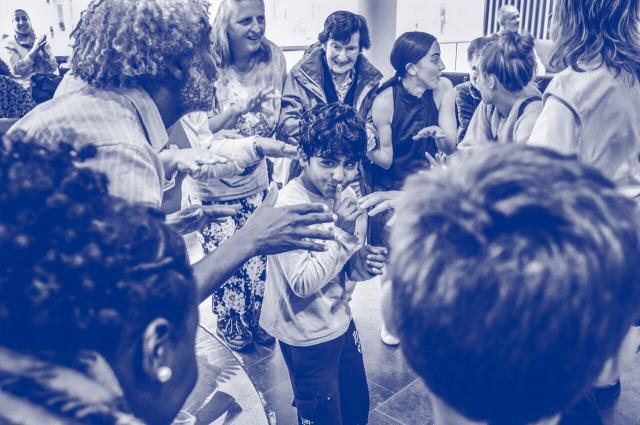Are you not sure whether this grant fits your idea? Sign up for the information session or contact one of the advisers. You will find their contact details on the right-hand side of this page. You can also email your question to cocreatie@cultuurparticipatie.nl.
Sign up for the information sessionWith what can I apply for this grant?
This grant is intended for intangible cultural heritage and cultural heritage activities in collaboration with communities. It is important that an activity is genuinely involved. Consider things like performing or passing on a craft, customs, traditions or rituals, such as certain forms of music and dance, storytelling and the processing of fabrics. From Dabke dance evenings or basket weaving to Winti theatre concerts. It is not necessary for the cultural heritage to be on an official list or to have been 'approved' as cultural heritage by others. As long as it is of value to the community and to society, and you clearly explain to us why.
What does the fund pay attention to?
When we have received your application, we will first check whether you meet all the practical conditions; below, you will read which these are. If everything is in order, we will continue with the substantive assessment of your application. In doing so, we will consider the impact your project has. For 'Communities: Paragraph 2', we would like you to work on at least two of the following impacts:
Members of the community take initiative themselves, contribute ideas or work on the plans and implementation of the project. A project contributes to ownership if the community as a whole, or the participants or the staff of an institution feel that afterwards, for example, they themselves have more say over their cultural heritage, that they have had influence on the form or outcome of the project, that they feel taken seriously, seen and heard, or that they are better able to actively champion their cultural heritage.
Through (intangible) cultural heritage practice, members of the community learn new practical and emotional skills that help them in life. This can also apply to the applicant or a collaboration partner. This can happen, for example, by attending a training or workshop together, doing things together under supervision, or team building. A project contributes to personal empowerment if the participants or staff feel that afterwards, for example, they have learned something valuable, gained new insights about each other, their perspective has been broadened, they have pushed their boundaries in a responsible way, or that they have stepped out of their comfort zone with positive results.
Communities, institutions and other stakeholders shape the project together. To do this, they form new connections within the community, at an organisational or a personal level. Or outside the community, for example with a cultural heritage institution, another community, a social organisation, or with neighbourhood residents. A project contributes to new connections if the community as a whole, or the participants or the staff feel that afterwards, for example, they have learned something about another person through the project, gained new insights, or know how they can contribute to a societal challenge from within their community.
Who can apply for this grant?
Only cultural or cultural heritage organisations can apply for a grant in this paragraph. However, the project is always prepared and implemented together with a community.
By a cultural or cultural heritage organisation, the Fund means a legal entity that is active within the culture or cultural heritage sector and is also registered as such with the Chamber of Commerce or a comparable organisation. This does not only refer to theatres, archives, producers or museums, but also 'smaller' foundations or associations with a cultural or cultural heritage objective. For example, a choir or an association of carnival float builders.
What are the main conditions?
- You are registered as a cultural or cultural heritage organisation with the Chamber of Commerce (KvK).
- You are applying for an amount between €25,001 and €50,000.
- You complete the online application form in My Fund.
- In your project plan, you explain which impacts and which societal challenge your project contributes to, and you demonstrate how you will achieve this. It would be good if your project plan contains a maximum of 4,000 words.
- Do you as the applicant reside in the European part of the Kingdom? Then you apply for a grant covering a maximum of 80% of the total project costs. You finance the other 20% by different means. You can spend a maximum of 10% of the project costs on material investments. Examples of material investments: sound and recording equipment, instruments, or a sewing machine.
- Do you as the applicant reside in the Caribbean part of the Kingdom? Then you can apply for a grant covering 100% of the costs, and you can spend a maximum of 20% of the project costs on material investments. Examples of material investments: sound and recording equipment, instruments, or a sewing machine.
- You submit a correct budget (costs and income are equal). We advise you to use the example listed under 'documents' on the right-hand side of this page. You can also use your own budget, but it must contain all the information that is in our model budget.
- You have a bank account in the applicant's name and submit a bank statement with your application.
- You do not start your project earlier than 13 weeks after applying for this grant, and not later than 6 months after you have been informed that you will receive a grant. Example: if you apply for a grant on 12 January, you will know by 12 April whether you will receive a grant. Your project can start between 11 April and 11 October 2026.
- Your project lasts a maximum of 2 years.
- You apply the three cultural codes and explain how you do this. Are you established in the Caribbean part of the Kingdom and cannot fully comply with the codes? Then you explain why not.
Good to know
- Make sure all the documents are complete before you fill in the online form.
- We will process applications in order of receipt, until the budget is exhausted. In 2026, 2027 and 2028, there is an annual budget of €1,070,000 for this paragraph.
- Questions? Please call or email us before you submit your application.
How do you apply for a grant?
- You apply for a grant via My Fund: our online application environment. Creating an account can take a few days. Start this on time.
- On our How It Works page, you can read everything about the different steps in the application process. In addition, please read all the information about this scheme under the heading 'Documents' carefully.



